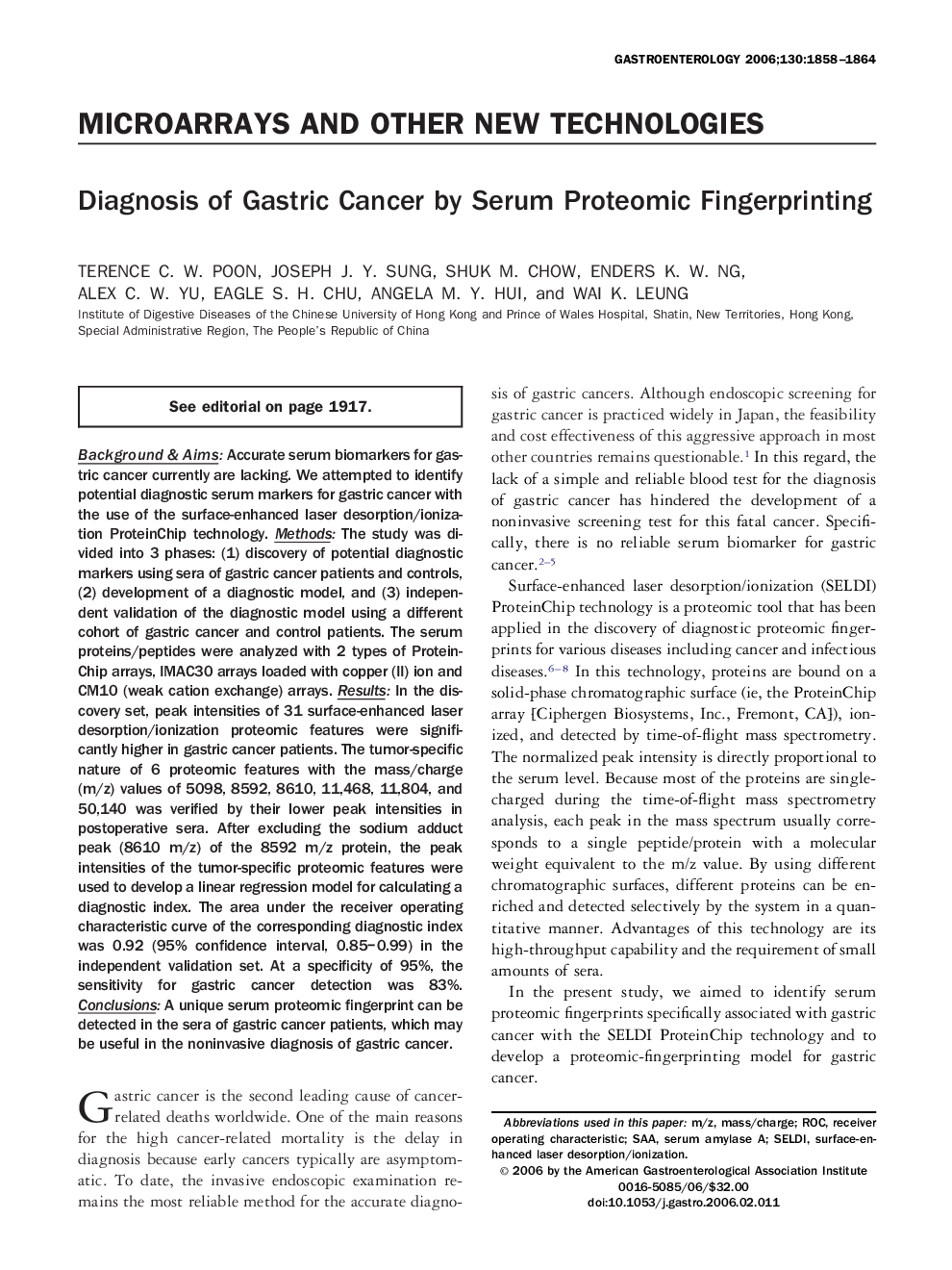| Article ID | Journal | Published Year | Pages | File Type |
|---|---|---|---|---|
| 3297640 | Gastroenterology | 2006 | 7 Pages |
Background & Aims Accurate serum biomarkers for gastric cancer currently are lacking. We attempted to identify potential diagnostic serum markers for gastric cancer with the use of the surface-enhanced laser desorption/ionization ProteinChip technology. Methods The study was divided into 3 phases: (1) discovery of potential diagnostic markers using sera of gastric cancer patients and controls, (2) development of a diagnostic model, and (3) independent validation of the diagnostic model using a different cohort of gastric cancer and control patients. The serum proteins/peptides were analyzed with 2 types of ProteinChip arrays, IMAC30 arrays loaded with copper (II) ion and CM10 (weak cation exchange) arrays. Results In the discovery set, peak intensities of 31 surface-enhanced laser desorption/ionization proteomic features were significantly higher in gastric cancer patients. The tumor-specific nature of 6 proteomic features with the mass/charge (m/z) values of 5098, 8592, 8610, 11,468, 11,804, and 50,140 was verified by their lower peak intensities in postoperative sera. After excluding the sodium adduct peak (8610 m/z) of the 8592 m/z protein, the peak intensities of the tumor-specific proteomic features were used to develop a linear regression model for calculating a diagnostic index. The area under the receiver operating characteristic curve of the corresponding diagnostic index was 0.92 (95% confidence interval, 0.85–0.99) in the independent validation set. At a specificity of 95%, the sensitivity for gastric cancer detection was 83%. Conclusions A unique serum proteomic fingerprint can be detected in the sera of gastric cancer patients, which may be useful in the noninvasive diagnosis of gastric cancer.
